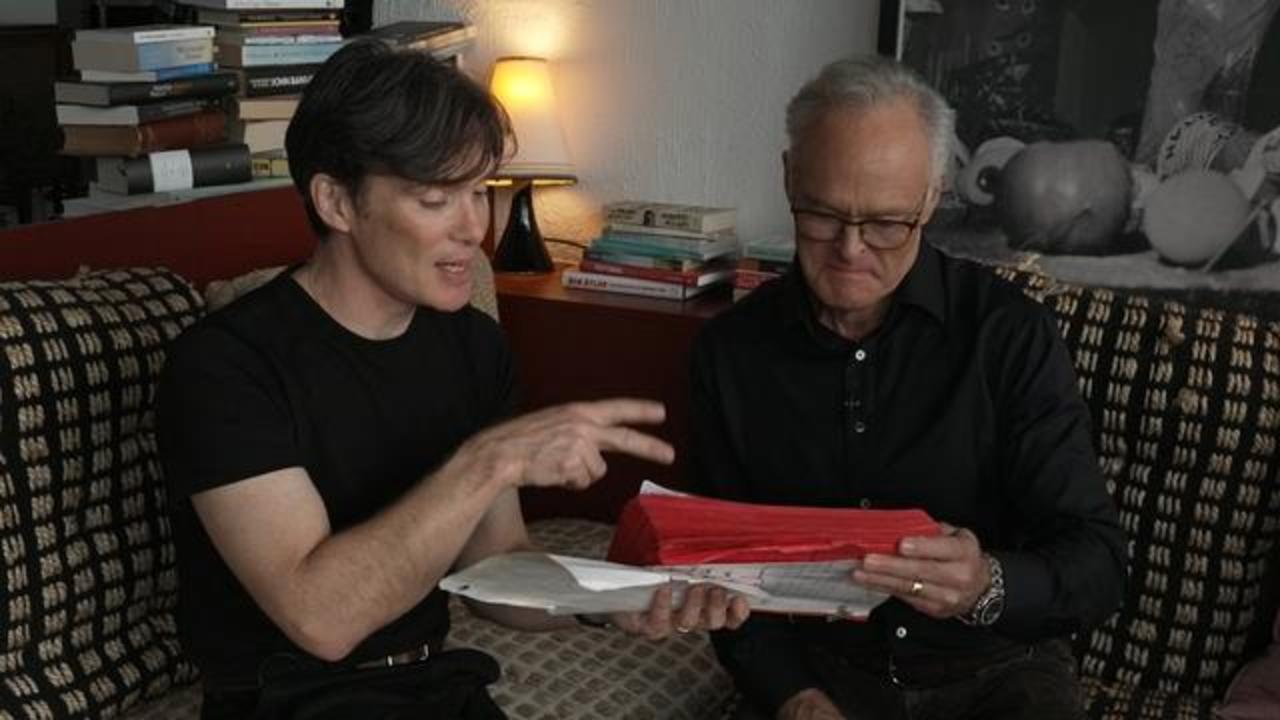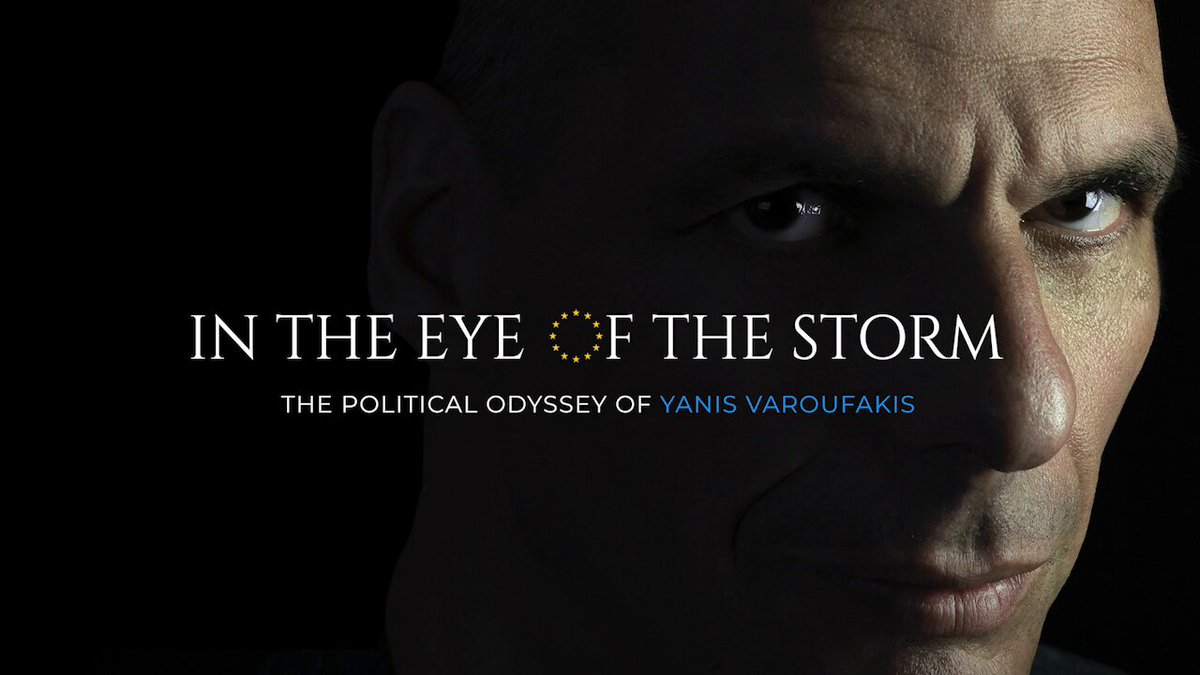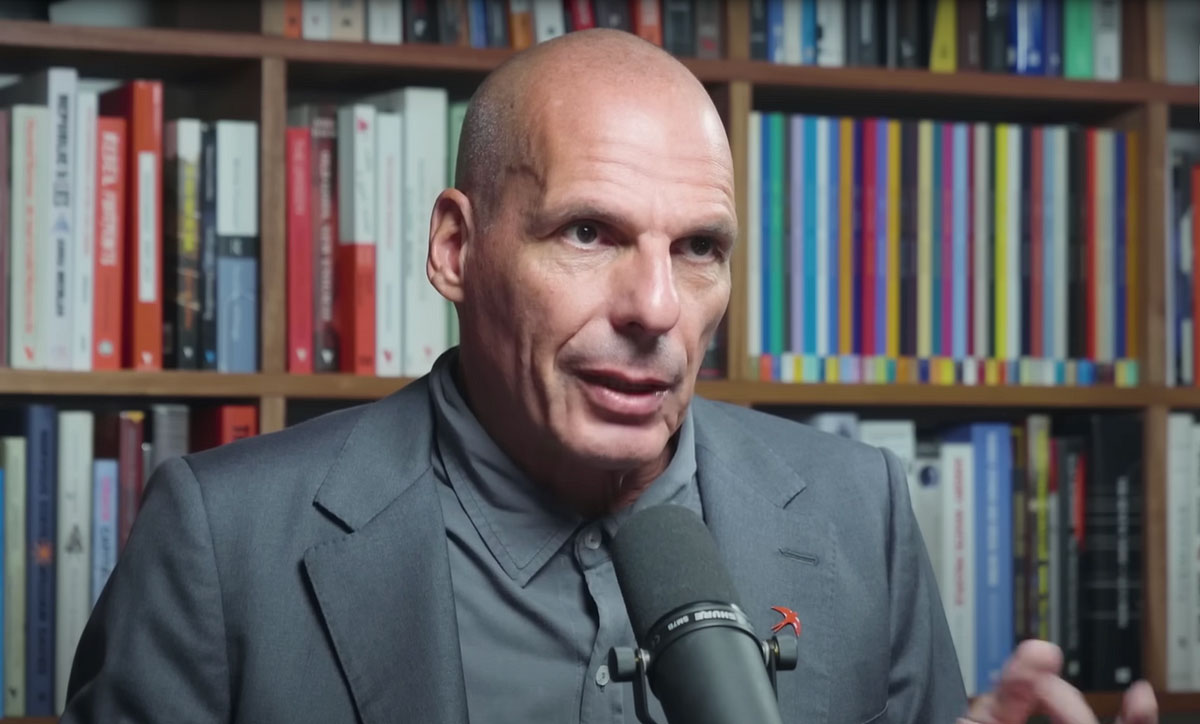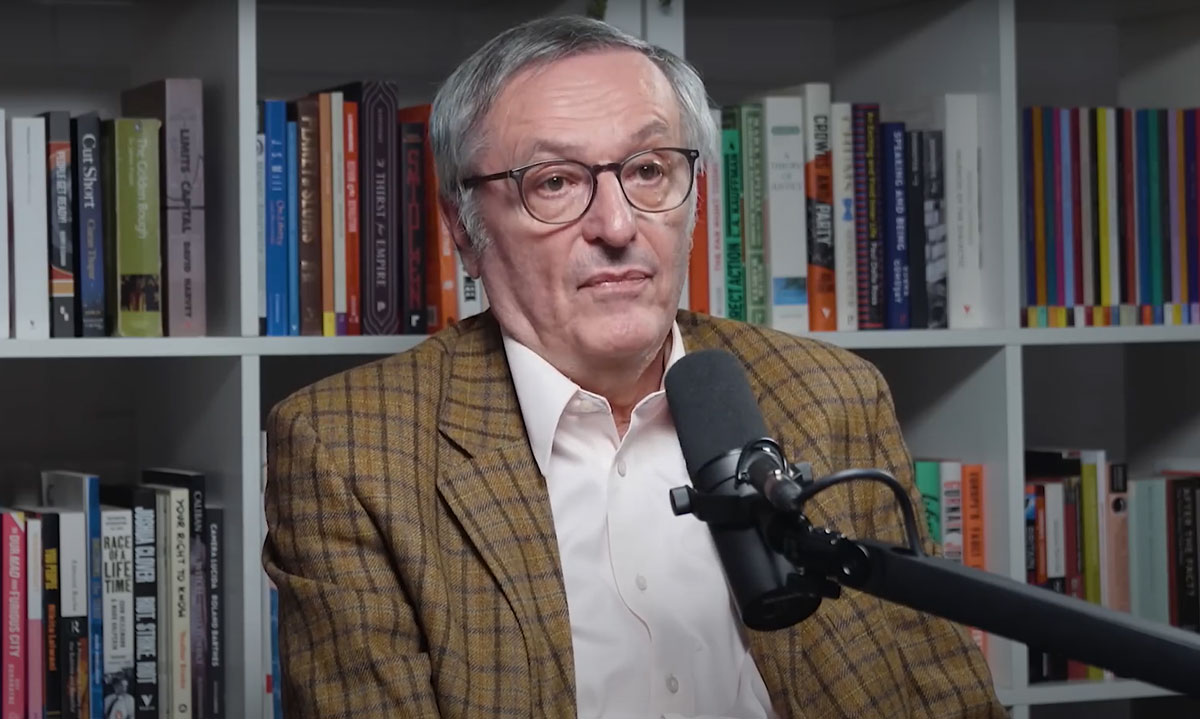Romney Wheeler interviews British philosopher, logician, mathematician, historian, and social critic Bertrand Russell at Russell’s home in Surrey, England. The interview was broadcast on his 80th birthday, which was May 18, 1952.
Bertrand Russell: How do you do?
Romney Wheeler: How do you do, Lord Russell?
Russell: Won’t you sit down? Now what are we going to talk about?
Wheeler: Well, Lord Russell, as you approach your 80th birthday I think we’d like you to tell us what you think you have learned and what you think you will never learn in your career as a philosopher?
Russell: Well there are some things that I don’t think I shall ever learn and indeed I hope I shall never learn. I don’t wish to learn to change my hopes for the world. I’m prepared to change my beliefs about the state of the world, about what happens, but not about what I hope. About that I hope to remain constant. I think we might call the subject of our talk ’80 years of changing beliefs and unchanging hopes.’ It’s very difficult for anybody born since 1914 to realize how profoundly different the world is now from what it was when I was a child. The change has been almost unbelievable. I try as best I can, in spite of my years, to get used to living in a world of atom bombs, a world where ancient empires vanish like morning mists, where we have to accustom ourselves to Asiatic self-assertion, to the communist menace. Well, this is altogether so different from what it was when I was young that it’s an extraordinarily difficult thing for an old man to live in such a world. I was born in 1872, my parents died when I was still an infant, and so I was brought up by my grandparents.
Wheeler: Can you tell us something about your grandfather?
Russell: Yes, I can tell you something about my grandfather. He was born in the early years of the French Revolution. He was a member of parliament when Napoleon was still on the throne. In common with all the Whig followers of Fox he thought English hostility to Napoleon was excessive and he visited Napoleon in Elba. It was he who introduced the Reform Bill in 1832, which started England on the road towards democracy. He was Prime Minister during the Mexican War, during the revolutions of 1848. I remember him quite well, but you see, he belonged to an age that now seems rather removed. And the world when I was young was a solid world, where there were all kinds of things that have now disappeared, that were thought to be going to last forever. It didn’t dawn on people that they would cease. English people certainly regarded English naval supremacy as a sort of law of nature. ‘Britannia ruled the waves.’ It didn’t occur to us that that might stop.
Wheeler: Even with Bismarck?
Russell: Bismarck was regarded as a rascal and we thought of him as a sort of uneducated farmer. But it was assumed that the influence of Goethe and Schiller would gradually bring Germany back to a more civilized point of view and, moreover, we thought of Germany as only a land power. Germany had at that time no Navy. In fact, we weren’t at all afraid of Germany. In fact, liberal opinion was more favourable to Germany than to France at that time. Bismarck himself compared Germany and England to an elephant and a whale, each formidable in its own element but no danger to each other. And that was how we felt. So we were not afraid of Bismarck at all. It was thought that there was going to be ordered progress throughout the world. Gradually every country was going to take to parliaments. There was going to be a bicameral legislature and two parties and it was all going to be exactly like England everywhere, all over the world. My grandmother used to laugh, because one time she said to the Russian ambassador: “Perhaps someday you will have a parliament in Russia.” And he said: “God forbid, my dear lady Russell.” Except for the first word, the Russian ambassador to the present day might give the same answer. But that was the assumption, it was all going to be orderly, all quite nice. The atmosphere apart from politics, it was one of Puritan piety, very great piety, very great austerity. We always had family prayers at 8:00 and before family prayers I had to do half an hour’s practice at the piano which I hated. Although there were eight servants in the house the food was always of the utmost simplicity and even of what that was if there was anything at all nice I wasn’t allowed to have it, because it wasn’t good for children to eat nice things. For instance, there would be rice pudding and apple tart. Don’t upset the apple tart and I had the rice pudding. There was extreme austerity in all those ways. Again, mother until she was over 70, would never sit in an armchair until after dinner, never. It’s always come out that sort of austere living by well-to-do people, which in those days was fairly common.
Wheeler: When did you get to Cambridge?
Russell: Oh, I got to Cambridge when I was 18 and that, of course, was a new world to me. I for the first time met people who, when I said anything that I really thought, didn’t think it absurd. I had learnt at home to say almost nothing about what I really thought. My people had a horror of philosophy which interested me. And they would say every time philosophy was mentioned: “Philosophy is summed up completely in these two questions: What is better? Never mind. What is mind? No matter.” And at about the sixtieth repetition of this remark I ceased to be amused by it. When I got to Cambridge it was a great comfort to me to find people who didn’t regard philosophy as absurd, so that I was very, very happy when I first got to Cambridge. I quickly got to know a great many people who became my lifelong friends. Most of them I’m sorry to say are dead now, but those who are still alive are still my friends.
Wheeler: You started with mathematics, didn’t you? And then moved to philosophy?
Russell: That is serious. I did three years of mathematics and one year of philosophy at Cambridge. I had done only mathematics before going to Cambridge.
Wheeler: What caused your interest in philosophy?
Russell: Well, two things, two very different things caused my interest in philosophy. On the one hand, I wanted to understand the principles of mathematics. I observed that all the proofs of mathematical propositions that were taught me were obviously fallacious. They didn’t really prove what they said they’d do. And I wanted to know whether there is any truth in the world that is known. And I thought if there is any, it is probably in mathematics. But it’s not in mathematics as I was taught it, so I tried to find out some truth there. The other thing that made me interested in philosophy was the hope that I might find some basis for religious belief.
Wheeler: And did you find it?
Russell: No, in the mathematical part of my hopes I was fairly satisfied, but in the other part no, not at all. For a time I found a certain satisfaction in the Platonic eternal world of ideas, which has a sort of religious flavour and gave me a certain satisfaction. But then I came to the conclusion that that was nonsense and I was left without any satisfaction of it as to my desires, and remained so. So as far as that goes philosophy proved worse [..] to me, but not on the side of technical basis of mathematics.
Wheeler: Wasn’t it about here that you entered into what you called a life of disagreement?
Russell: Yes, I disagreed first with my people, both about mathematics and about philosophy. They cared only about virtue. They thought virtue was the only thing of importance in the world. Mathematics therefore was unimportant, because it has no ethical content. And philosophy was positively pernicious because it undermined virtue. So that on that point I had strong disagreement with my people. But as regards that, of course, that disagreement, as far as my personal life was concerned, was resolved by my living among a academic people who didn’t take that view. So that I got a game into it circle the people with whom I was quite at home. But that was brought to an end by the first war, where I took a pacifist line. I was against the first war. I was not against the second. Some people think that this is an inconsistency, but it isn’t. I never during the first war said that I was against all war. I said I was against that war and I still hold that view. I think the first war was a mistake and I think England’s participation in it was a mistake. I think if that hadn’t happened you would not have had the communists, you would not have had the Nazis, you would have not had the Second World War, you would not had the threat of a third. The world would have been a very much better place I think. Germany in the time of the Kaiser was not uncivilized. There was a certain amount of suppression of opinion but less than there now is everywhere, except in England and Scandinavia. So it really wasn’t very bad. For propaganda purposes the Kaiser’s government was representing the escape route, but it was only talk. It wasn’t really true.
Wheeler: Your opinions today in regard to Russia are not altogether friendly. Did you always feel that way about the Bolsheviks?
Russell: Yes, and that caused another violent disagreement. During my pacifism during the first war I became estranged from what you might call conventional people. And then I went to Russia in 1920, and found that I abominated the Soviet government, I thought they were dreadful people, dreadful people already and becoming more so. It was sure to go on becoming more so. And so then I had to break with all the people who had endured my pacifism. We were like trash […] so that I was left in a very great isolation at that time. However, I escaped some of the pain of it by going to China, where I spent a very happy year. I liked the Chinese very much. And there I found people I could agree with, that I could like.
Wheeler: Any conclusions about China?
Russell: Oh I don’t know about conclusions. I don’t think I came to any particular conclusions. I continue to think as I had thought before that democracy is the best form of government where it’ll work. It didn’t work very well in China, it wasn’t working at all. And one could see that it wouldn’t work there. They hadn’t the political experience. But I thought it would work there in time and I’d say it would have done if circumstances had been a little more propitious.
Wheeler: On your return the focus of your interests changed, didn’t it?
Russell: Yes, going to the birth of my two elder children I became very much interested in education and at first especially in education in the very early years. I didn’t like the old fashioned schools for a number of reasons. I didn’t altogether like the progressive schools. They were in some respects, I thought, much better than the older ones. But there were some things about progressive schools, at least about most progressive schools, that I didn’t feel were right. I thought they didn’t pay enough attention to instruction. It seems to me that in a technically complex world you can’t pay any important part unless you have a very considerable amount of actual knowledge and I don’t think that most children will acquire much knowledge unless there is a certain amount of discipline in school. I think the real discipline required for acquiring knowledge ought to be insisted upon and isn’t sufficiently insisted upon in a good many modern schools that I know.
Wheeler: Did you change any of your opinions in that regard?
Russell: Well, I suppose to some degree. I tried running a school of my own, because I wasn’t satisfied with other schools. I wasn’t the talent to be an administrator and I wasn’t satisfied with the school that I tried to run. Fortunately just about that time certain modern school that I was interested in became, I thought, quite good enough and I was satisfied with that. I have—I suppose—changed my opinions not only about education but about a good many things. As a result of seeing the kind of various things people do, I think that freedom is not the panacea for all things. I think there are a good many matters in which freedom should be restrained. Some of them things in which it’s not sufficiently restrained at present. In the relationship between nations there ought to be less freedom than there is, I think. And to some degree this applies in modern education, too, I think. Some progressive schools certainly have more freedom than you want to have. There are some freedoms that I think will be desirable in education. Now, in the old fashioned school, if a child uses a swear word it’s thought worse than if he commits an unkind action and that seems to be absurd. Clearly the unkind action matters more and in that sort of way I don’t like the old-fashioned way. I also think children should be free to explore the facts of life to a degree that they are not brought up in the old-fashioned way. I think there should be free speech. There are a number of things that I like very much about modern education. But both in education and in other matters I think freedom must have very definite limitations. Where you come to things that are definitely harmful to other people or things that prevent you yourself from being useful, such as lack and knowledge. Sure there are those respects in which I suppose I should lay less stress on freedom than in former times.
Wheeler: Do you still believe in the importance of abstract philosophy?
Russell: Well, now that’s a very difficult question. I have myself a passion for clarity and exactness and sharp outlines. For some reason that I’ve never understood this makes people think that I have no passions, that I am a cold fish. I don’t know why but it does cause people to think that, I don’t think that’s altogether just, but that’s neither here nor there. But I do like clarity and exact thinking and I believe that very important to mankind because when you allow yourself to think inexactly your prejudices, your bias, your self-interest comes in in ways you don’t notice and you do bad things without I’ve knowing that you’re doing them. Self-deception is very easy. So that I do think clear thinking immensely important, but I don’t think philosophy in the old-fashioned sense is quite the thing the world needs nowadays. The needs of the world are different from there.
Wheeler: Well, what do you feel today’s needs are?
Russell: Well, of course needs depend on what a person’s capacities are. But if I went now this moment a young man whether in England or in America I should not take to philosophy. I think there were other things better to take to. If I had the necessary capacity I think I would be a physicist. If my capacities didn’t run in that direction I should think that history, psychology, mass psychology especially, theory of politics things of that sort are much better worth working it than pure philosophy. And it’s that sort of thing that I should now take to if I were now young.
Wheeler: Lord Russell, what do you think the world needs to reach a happier state?
Russell: Well I think there are three things that are needed if the world is to adapt itself to the Industrial Revolution. The troubles we are suffering now are essentially troubles due to adapting ourselves to a new phase of human life, namely the industrial phase. And I think three things are necessary if people are to live happily in the industrial phase. One of these is world government, the second is an approximate economic equality between different parts of the world, and the third is a nearly stationary population. And I’d say a little about each of those.
As to world government the world government should be of course the federal government leaving a very great deal of freedom to the individual national governments and only those things controlled by the world governments, which are absolutely necessary for the avoidance of war. The most important and most difficult of these is Armed Forces. All the important weapons of war will have to be in the hands of the international government, and to it alone. When that happens war will become practically impossible and if war is impossible, mankind could go ahead. If war is not impossible every advance in scientific technique means an advance in mass murder and is therefore undesirable, but if [..] were peacefully achieved it would be just the opposite. That’s the first point.
Now I come under the question of approximate economic equality. As things stand present, Western Europe and still more the United States of America have a high standard of life on the whole a great majority of mankind live fairly comfortably from a material point of view Asia on the other hand lives in very, very great poverty so does most of Africa. And the moment people are sufficiently educated to be aware of these facts the inevitable result is a great development of envy in the poorer parts of the world. That envy is a cause of unrest and inevitably makes world peace precarious. There’s only one way of dealing with it which is to produce approximate economic equality, which is a long story, but it can be done.
The third point about population is very vital indeed. the food supply of the world tends at present to diminish through the denudation of the soil. It tends of course also to increase through various technical advances, but those two [..] balance. So that on the whole food produce of the world is not increased appreciably. Now that means that unless everybody is to be very poor especially if you have economic equality unless everybody is to be very poor there must be not more people to be fed, not many more, than there are now and therefore you’ve got to get approximate ecology of population and approximately stationary population. Otherwise those parts of the world where the population increases fast, we want to go to war with those where it increases slowly.
Wheeler: That brings us precisely to the problem of Asia and what part Asia will play in the immediate future.
Russell: Well, Asia first of all has risen to the point of education, some Asians have, where it is not prepared any longer to be subservient to the white man. It hasn’t noticed the Russians are white. If it had it would take a different line, but it seems to think that Russians are yellow or black or some other colour. And I think our propaganda ought to be mainly devoted saying only Russians also are white. I believe that would be the effective propaganda to use in Asia. but I passed that point by. Asia clearly is going to claim equality with the white men. and it’s perfectly futile absolutely futile, for the white man resists that game. It will infallibly win. infallibly. And we ought therefore to concede it graciously at once before we are driven to it you can see two pretty colleges to Asia but if Asia is not to overwhelm the rest of the world with a vast land population and poverty Asia must live up to its responsibilities and must learn the sort of things we have learned in the West, which is how to maintain a roughly stationary population. And if they can’t learn that. which I fully believe they can learn and learn quickly much more quickly than most people think, and if they can’t learn it they will not have won their claim to equality.
Wheeler: Lord Russell, speaking as of today can you see the influence of any one philosopher more than any other one.
Russell: Well, I suppose in recent years the most important influence has been Marx if you can dignify him with the name of philosopher. I should hardly like to dignify him so myself, but I suppose he must count in the list and he certainly has had more influence than anybody else.
Wheeler: For those of us who reject Marx, can you offer any positive philosophy to help us toward a more hopeful future.
Russell: Oh, well, as to that. You see, I think one of the troubles of the world has been the habit of dogmatically believing something or other. And I think all these matters are full of doubt and the rational man will not be too sure that he’s right. I think we ought always to entertain our opinions with some measure of doubt. I shouldn’t wish people dogmatically to believe any philosophy not even mine, not even mine. No, I think we should accept our philosophies with a measure of doubt. What I do think is this that if a philosophy is to bring happiness it should be inspired by kindly feeling. Now Marx is not inspired by kindly feeling. Marx pretended that he wanted the happiness of the proletariat, but he really wanted to is the unhappiness of the bourgeois. And it was because of that negative element, because of that hate element that his philosophy produced disaster. A philosophy that wishes to do good must be one inspired by kindly feeling and not by unkindly feeling.
Wheeler: Summing up, Lord Russell, do you feel that there is hope for the world today?
Russell: Well I do. I feel it very strongly but how far that is really a rational conviction how far is temperamental I can’t say. But I do must strongly feel that there is hope. There may be very dreadful times ahead of us—I dare say there are—but I still believe… I believe most firmly that through whatever pain and suffering mankind will emerge from these dreadful things and will emerge into some world that will be happier than any world that existed in the past. I’m firmly persuaded to them what I do know is how long it will take.





1 thought on “A Conversation with Bertrand Russell (1952)”
The interview with R. Wheeler is an old favourite of Russellian enthusiasts, but I hadn’t realized there was a transcribed version. This transcript contains a few errors, solecisms, and so on, probably due to Russell’s oddly Edwardian pronunciation of English and/or the quality of microphones in use in 1952. I’d be happy to send you a list. Just let me know at the email address given below. Thanks for starting us down the road to a decent transcript of this rather amusing conversation with Bertrand Russell.